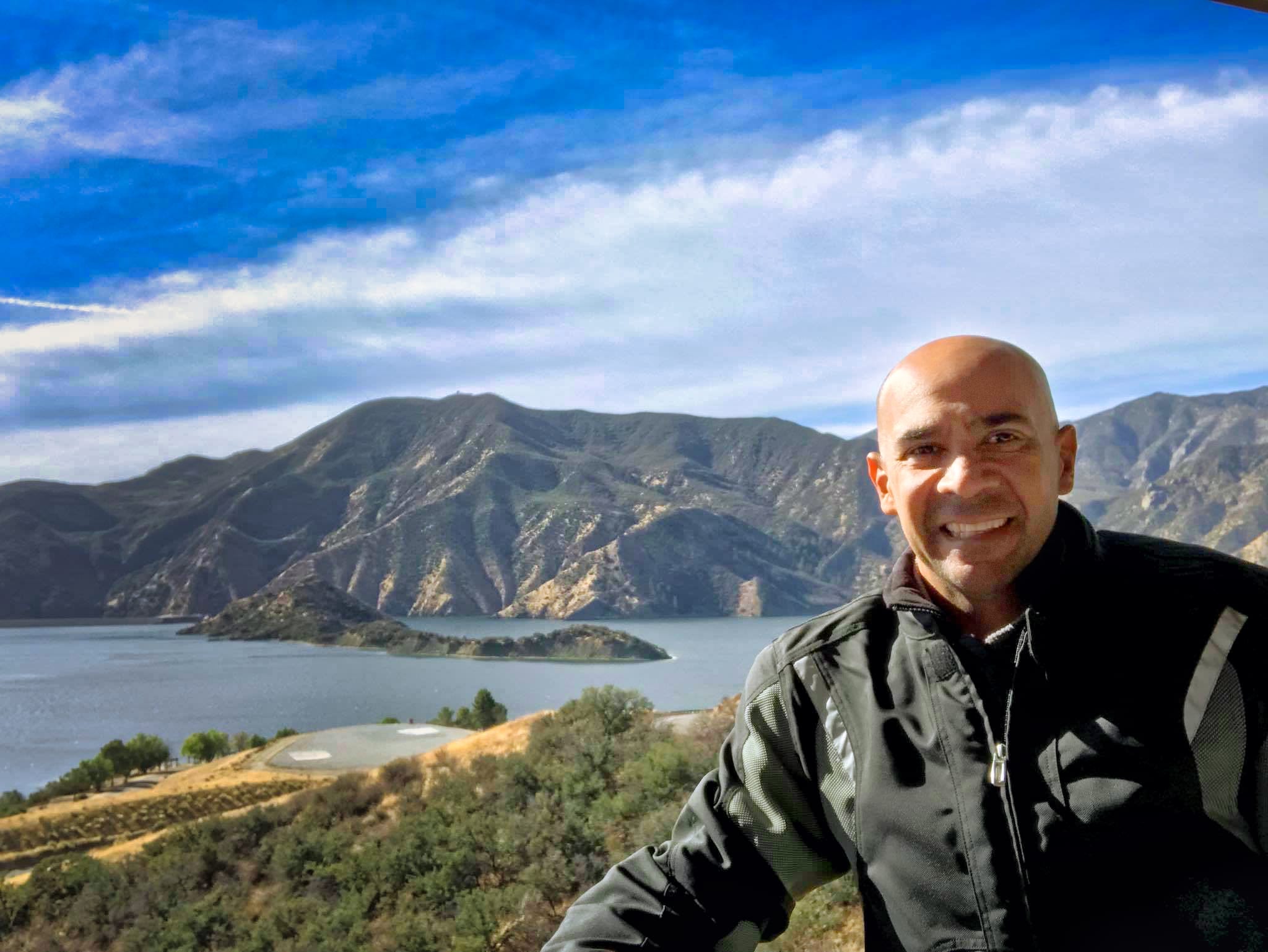OPED: A Captain’s Experience Concerning Race And Colorism

by Captain Roy Love, USN (OP-ED) “What is it like, being black in America?” I was asked this in June of 1995, by a young man I didn’t know, in the unlikeliest of places.
I was on a deployment to the Baltic on USS CAPE ST. GEORGE (CG 71), and the ship had pulled in to Aarhus, Denmark for a couple of days. I was out on liberty with a few of my fellow Junior Officers, and we went to a dance club to decompress. While there, a young Dane approached us, no doubt curious about the American Sailors, and started a conversation with us.
Where are you from? Did you come with the American ship? What do you think of Denmark?
Small talk at first, and innocent, so no issue. We are taught to be on alert for any questions about ship movements, or military topics, the “everyone is a foreign spy” and “loose lips sink ships” type of thing. So, what happened next was completely unexpected. At some point, this young man decided he would ask me what it was like to be a black man in the United States. I was bothered by his question.
Growing up I was essentially taught that Dominicans weren’t “black.” My terse response, to my shame today, was “I don’t know, I’m Hispanic.” He apologized, said he did not mean to offend, and I immediately thought I had been wrong to feel offended by his question. I don’t truly recall much more of this exchange, and my mind has undoubtedly altered my perception of this after so many years, but I know I did change my tone, and told him not to worry, as it was a common mistake. He walked away, and I went about my business, yet still perplexed at his question.
I have relayed this incident to friends and family in the past, but I had never really taken the time to think about what it truly meant. It has taken me 25 years to realize I missed an opportunity then, and I thought I would never get it back. Watching Mr. George Floyd being suffocated to death by a policeman, and the way Mr. Ahmaud Arbery was chased and shot by two white men, vexes and scares me at the same time. Could that have been me, my brothers, cousins, friends, or even my own child? I want to say no, but I know this would be a lie.
Our skin color alone could put us in the same circumstance that cost Mr. Floyd and Mr. Arbery their lives, our own lives considered worthless and forfeit because of what we look like. This needs to change.
Last night my 3 and a half year old baby girl asked me “Papa are you brown?” All I could think was “WOW, where did this come from?” My response was, “yes baby, I am brown.” Which I followed with the question “who taught you that?” and she said “Me.” Obviously she didn’t learn this on her own, so she had to hear it during a talk between my wife and I, or someone in our immediate family.
In all honesty, I tend to refer to myself as black when discussing race at home, so I can only think that she asked because of something she heard said between my 10 year old daughter and her cousins, who are 11 and 5. So I asked her what she thought she was, and she’s pretty certain she is brown, my 10 year old daughter is black, mom is brown, one of her cousins is brown and the other one is white. In my immediate family, we are all Hispanics, and we are all mixed. The fact that our children are talking about race and “what we are” and that they perceive themselves as different is really bothering me. Colorism is real in our family, and in this world, and it is not good. I need to teach my children better.
The first time I was asked if I was black was when I started Junior High School in the United States. Back then, I would just tell people that I was Dominican. You see, a lot of black and mixed Latinos or Hispanics do not consider themselves “black”. The word for black in Spanish is “negro.” Over half a century on this earth, and to this day, I seldom hear a black Latino/Hispanic refer to himself or herself as black, instead they use other terms, like “triguenito” or “morenito” or “indiecito.” These terms, meant to imply someone is a little darker in skin tone, but not necessarily black. It is straight up a denial of who we are, and blatant acknowledgement of the myth perpetuated by our parents, and their parents, family, and friends, that being white is better, that having straight hair is better, and that marrying someone lighter is considered “mejorando la raza” which translates to” making the race better.” This still happens. I have heard it from my own family, and I have shamefully laughed about it as if it were a joke. It is not a joke. It is wrong. And we need to stop. We need to be better than this, and teach our children better, and correct it when it happens.
I will admit up front that I truly don’t know, or fully understand, what it is like to be African American in the US, or to grow up as a black man in the United States. I moved to New York when I was 13 years old. Until then, I had always been “Dominican” even though my father was a US Citizen, of Puerto Rican parents, and I was born a citizen of the United States. Like many Hispanics, I am a multi-racial human being. I am not African American, but one of my grandparents was black, his ancestors brought to Haiti, from Africa, as slaves. I am not white, but my father and both his parents and their parents were. Their ancestors came from Spain to Puerto Rico and the Dominican Republic. I am not “indian” or Native American, but my mother’s father was part indigenous, a descendant of aboriginal Caribbean people (Arawak), which is why I may look like I am from India when I let my hair grow out. I am not Jewish, but one of my great grandparents was Ashkenazi, from Europe. All that to say, as mixed as I am genetically, I am still a black man. I have been defined by my skin color since the day I was born. One of my aunts tells stories about how I was so black, my mom didn’t want to see me. Presumably, because she wanted a lighter skinned baby. It was always in jest, and I used to laugh about that, with the rest of my family. Since I can remember, my mom has been calling me “el unico negro que bota miel por los poros,” this sounds way better in Spanish, but it loosely translates to “the only black man whose pores give honey” and “el moreno,” which can be translated as “the dark one.” In New York, and many other states now, black people are called “morenos” by many Hispanics. My aunts and grandmother still call me that. These are supposed to be terms of endearment. At least that is how I have always accepted it, but they certainly point out that I am the darkest skinned one in my family. Many families still hold this practice. One of my cousins, dark skinned, is also called “Moreno,” so much so that this nickname has supplanted his proper name, which is rarely, if ever, used to refer to him. A heavy cross to bear in a Dominican family, and one which no child should be subjected to. Our parents should have known better.
I recall a time when surveys assumed that Hispanics were a separate race category, and we had to mark an X for “other.” What an insult, to have no race, or be considered something “other” than normal. In my 20’s I rebelled against this X, or “other” designation, and in any race block I would often write in HUMAN for my race. In the last two Census surveys we have had the option of being “black” or “white” of Hispanic heritage. There is an ongoing debate about Hispanics/Latinos and race selection in America. Apparently, many Hispanics are preferring to be counted as white over black when given the choice. I’m not going to quote any articles or research here, so I will recommend you “Google it”. It is sad that we can’t even make up our minds about what we think we are or who we want to be. I personally selected black in this years’ and the previous census. I wish more people would embrace their sense of SELF and feel good about who they are and where they came from.
If you see me walking down the street, or see a picture of me, I am a bald headed black male. That is how I would be described. Especially if I am dressed casually. Your perception of me and who I am will likely be based on my skin color, physical features, and the clothes I am wearing. This is normal and understandable. In your mind, I will be who your parents, friends, and society have told you I am. If I am in my military uniform, or you see a picture of me with the words “CAPTAIN” or “Commanding Officer” under it, your description, and perception of who I am, especially if you understand military rank structure and the privilege that one enjoys in having a recognized position, will be different. If you hear me speak, I might immediately become Hispanic or Latino, because of my accent, but I would still be black, or brown. I will never be a white male, and I don’t want to be. But I do want to be treated with dignity and respect and without bias and prejudice. That doesn’t always happen, especially if I am not wearing my military uniform.
In the United States, in Central and South America, specifically Venezuela and the Caribbean, and in Europe, I have been called out for the color of my skin, and treated in a less than respectful way on multiple occasions. Mind you, I have never been arrested, I have never been assaulted, and I have never been publically harassed, but I have experienced the sometimes subtle, sometimes blatant, biased, unjust and disrespectful treatment others have, solely because of what I look like. Like being seated at the back of a restaurant that was nearly empty in a small town in California, with my wife and children, or being called out and yelled at by a hotel manager in North Carolina, for having a dog in a hotel room, only to watch him change his tone when he discovered the dog belonged to a white friend who was travelling with me. Like being stopped by undercover police, having my car searched thoroughly for drugs, and asked a bunch of questions as to why I was driving through a certain neighborhood near my College. I say nothing about this. Just accept it, you didn’t get arrested, you’re good.
A few other specific examples come to mind;
1988, San Diego, California. Boot camp. I am selected as the Yeoman for our recruit company immediately after starting boot camp. The first time in my life where I have been in the company of young men from all over the country. Our company is mostly white, with a few blacks a few Latinos, and some Asians. I am in charge of managing the administrative issues within our company. A problem breaks out between two white men in our company. Apparently, in the middle of the night, while both are in the bathroom, one of them has solicited sex from the other one. A group of us, myself and two other white men are woken up by the watch to provide support for the recruit who is crying because of what happened. As we walk in, the victim looks at me and the other two and says “not him, I don’t want him in here.” Strange. But OK. I call our Company Commander and let him know what has happened. The perpetrator is kicked out of the Navy. No one addresses the issue of this white recruit not wanting a black recruit to help. I say nothing more about it. Dead issue.
1989, College, a white roommate, whom I helped academically all the time, calls me a monkey and makes monkey calls and gestures while talking to mutual friends about me. Of course my friends tell me about this. Tells his cousin that he has me do his homework all the time, like a little slave. His cousin is attending the Naval Academy and just happens to tell my brother, who also attends the Naval Academy, and who subsequently confronts me about this. I’m pissed, but I say nothing about it, except I get a new roommate the next semester.
gCaptain




